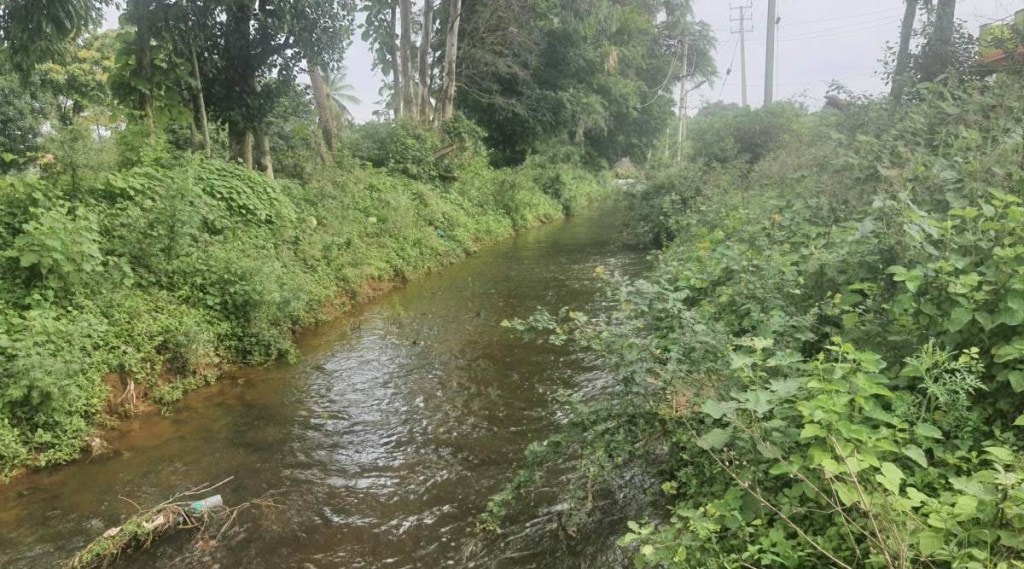The Karnataka government has come together with several organisations in Bengaluru to fill up 11 lakes in Anekal and establish a link among them by restoring stormwater drains to ensure free flow of rainwater. The stakeholders, which include two citizens’ collectives, a non-profit organisation, and an academic institution, said the project, once completed, would address urban flooding during monsoon and also increase groundwater recharge.
A source told The Indian Express that stormwater drains allowed smooth flow of water.
These drains, connected to the lakes, have been buried under the ground or encroached at certain points. As a result, they have been rendered defunct, leading to flooding in Anekal.
Due to Anekal getting marooned during the monsoon, the citizens’ groups and the government collaborated to revive the interconnectivity between the drains to replenish the lakes and groundwater, the source said.
Also Read | Year after rejuvenation drive, Bengaluru lake’s water quality shows improvement
The project, with an estimated cost of around Rs 3 crore, will be implemented in collaboration with two citizens’ collectives — Anekal Taluk Environmental Protection Federation and Friends of Lakes — working to protect the lakes, India Cares Foundation, and Water Institute of Bangalore University.
The ambitious project will start at the 200-acre Anekal Dodda Kere, believed to have been built nearly 1,000 years ago. The lakes that will be filled up are —Chikka Hagada Kere, Anekal Dodda Kere, Bygdenahalli, Kammasandra Lake, Mayasandra Lake, Marasuru, Harohalli Lake, Sidihoskote, Attibele, Nanjundaiahna Kere, and Suragjakkanhalli Kere.
Sharing details of the project, Captain Santhosh Kumar (Retd) told The Indian Express that there would be three routes of canals connecting over 11 lakes in Anekal taluk. These would ultimately connect to the Dakshin Pinakini river at the border with Tamil Nadu.
As part of the project, 15 km of stormwater drains from Anekal Doddakere lake to Bidarguppe lake on the border with Tamil Nadu border will be cleared. This will establish a network of free water flow. Kumar added that a detailed survey would be done with help from private agencies and varsity students, managed by government officials.
The request for a detailed project report in this regard has already been sent to the Minor Irrigation Department for approval. Once the project starts, it will take 8-10 months to be completed, sources told The Indian Express.
Also Read | Bengaluru’s Kowdenahalli lake in dire need of makeover
A Revenue Department official told The Indian Express that the request detailing the plan of action had been sent to the Minor Irrigation Department. Once the approval comes, encroachments on the drains will be evicted.
Kumar said 80 villages around the lake would benefit directly and indirectly and groundwater would be replenished.
Flooding in urban areas will also reduce. Digging for the project will be done by traditional well diggers, Manu Vaddars, providing livelihood to at least 25 families, Kumar said.
Of the Rs 3 crore project cost, 12.5% will be spent on preparing the detailed project report, 12.5% on clearing plants/encroachments, 45% on digging and making the canal, 20% on finishing bunds, planting endemic trees to strengthen the bunds and hold the water, while helping the ecosystem sustain animals and birds, 7% on enabling, monitoring, and managing the project, the sources said. The remaining 3% will be spent on educating the communities living around the stormwater drains so that they can maintain the network.
Also Read | Four Tamil Nadu sites added to Ramsar list of wetlands, India’s tally climbs to 75
Friends of Lakes co-founder Ram Prasad told The Indian Express that rejuvenation of feeder channels was important for a lake to survive and this should be done following all engineering and legal procedures and protocols to set a benchmark for future works. The undertaking demands coordination among different government bodies and agencies, which have responded positively, he said.
